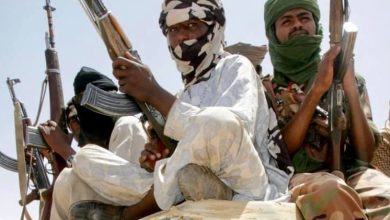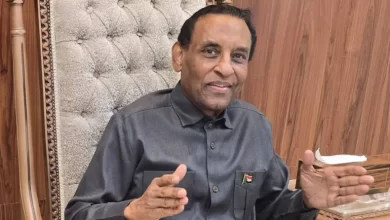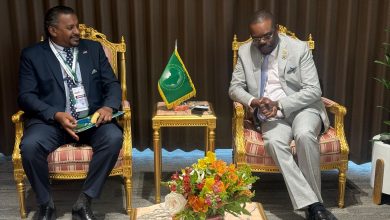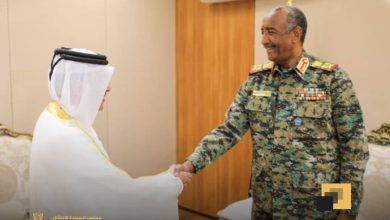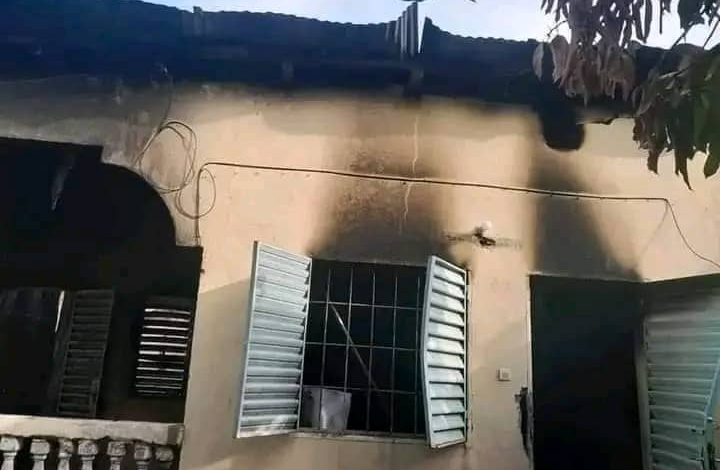
When the humanitarian situation turns into a pressure card in the hands of the militia supporters
Report – Amir Abdel Majid
It was striking that the Rapid Support Militia RSFmoved its forces in Khartoum to attack at the same time, at dawn of Eid, SAF positions in Khartoum, which was surprising because the force that attacked here and there is small, and perhaps it itself knows that it is unable to make a change.
However, it attacked army headquarters and tried to enter an area such as Karari, which it failed to enter while it was at the height of its strength in the first months of the war.
It also attacked armored vehicles, signal corps, ammunition, and others with small forces, although it – the militia – had previously attacked it with convoys of fighters and vehicles and failed to enter it.
On the same day, the militia bombed Karari local neighborhoods with shells from the early hours of Eid until noon that day, and returned to strike neighborhoods with shells on the fourth day of Eid, which led to deaths and injuries among civilians, as the bombing reached many neighborhoods and more than (26) were killed. Dana within minutes in a geographically limited area.
Decompression:
This bombing resulted in killing of three people on the fourth day of Eid, including the young man Sharaf, who is one of the most distinguished young volunteers at Al-Naw Hospital, and a large number of citizens were injured with multiple injuries. What is the purpose of these movements? Does the militia believe that killing citizens puts pressure on the armed forces and may force them to sit down to negotiate, as one of them, who is from the Arab diaspora, said in one of the recorded recordings spread in the media? Or do its theorists believe that relieving pressure on the Emirates diplomatically must pass through the bodies of the Sudanese, especially after the speech of the Sudanese representative in the Security Council about the direct Emirati role in the Sudanese war and its being a genuine partner in what happened and not just a supporter, addition to the European and regional movements calling for sitting at the negotiating table to stop the war and enter into political negotiations leading to the completion of the transitional period.
Provocative matter:
The question here is, are the Sudanese really looking forward to completing the transitional period now after everything that happened to them? Or should things be subject to new standards to determine the features of the period following the cessation of the war?
Mahmoud Al-Sir, an employee in a telecommunications company who lost three members of his family in this war due to clashes and artillery shelling, says, “Talking about a transitional period and even about defining the features of the coming period is provocative to people because we are now under a hail of bullets. Believe me, no one who has not lived through these moments and knows their horror and raised the dead and wounded under the shelling of cannons, rocket launchers, Dushkas, and others can know or appreciate the value of sleeping without fearing that gunmen will enter your room to kill you or that a shell will fall and destroy you, your family, and your children.” He added, “Most of those who are talking about peace now have only lived through the war in the context of their displacement, and most of them are either already present and residing abroad or left in the first months of the war. We will not let these people decide the future of our children after what we have lived and tasted here. We do not want to talk now about a transitional period that will bring these agents and traitors to power again.” He added, “Let’s stop the war first and see the truth of what happened to our country and then decide the system of government itself. Will we remain states and a federal government or will we go to other options such as confederation before we decide who will rule and which elections will be held.”
Destruction of Sudan:
In contrast, Hassan Arbab, who was interviewed by (Sudan Events) in front of Al-Naw Hospital in Al-Thawra and works as a middle school teacher in one of Omdurman’s schools, said, “We are here because the shells that fell on the eighth neighborhood injured my nephew with shrapnel.” He added, “He is fine now, but one of his friends, the young man Sharaf, died, so this affected him a lot.”
The youth was martyred after a shell fell on the mosque attached to Al-Naw Hospital. Arbab said, “We are not looking forward to a transitional phase now.
We no longer trust the parties after what we saw from Hamdok, Khaled Selak and those with them. These people, perhaps for the first time in our history, have revealed a blatant face of treason.
It is not possible that just because they want seats, they will destroy Sudan and ally with the Arab diaspora against their people. This is illogical.” He continued, “Look at these shells that are falling on us day and night and killing our people. Can anyone here stand and support someone who fires these shells and even thinks that he will reach power through his rifle?” He said, “If the Rapid Support Forces RSF think that these shells will break us, they are delusional because we are stronger than them and we will rise and overcome our stumbling block.
Even if one man remains from us, he will fight and die for his country.” Regarding the Rapid Support Forces RSF’s strategy in attacking army headquarters, he knows that its equipment and supplies are less than what is required to enter them.
Pressure and Negotiation :
Regarding the insistence on sending shells to Karari locality daily, Dr. Osama Hanafi, a specialised on political science at the University of Sudan, said, “What appears here is that the matter is intentional in itself, meaning that the attack is not intended to enter military areas, but rather to say that they are still here and can cause harm, so it is better to sit down with them and negotiate.
This, in my opinion, is the thinking of the Rapid Support Forces RSF now, and behind them its political wing and the countries sponsoring the war in Sudan.” He continued, “They know that this pressure on the armed forces will not change anything, but through these actions they are addressing the international community with the claim that proves the superficiality of those who move them, that pressure on the army with the humanitarian situation will force it to accept negotiations.”
